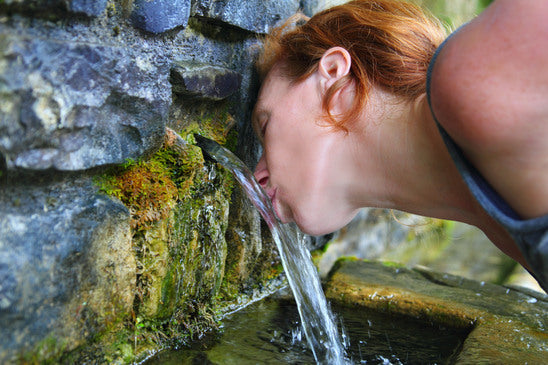What is the Difference Between a Well and a Spring? Here’s Your Guide to Pure, Natural Water Sources

Consistent access to clean water is one of the most essential aspects of life, and the methods of sourcing this vital resource have evolved over centuries. Two common sources of natural water are springs and wells – while both provide life-sustaining hydration, they differ significantly in how they form and function.
If you’ve ever wondered whether well water is technically spring water, or contemplated the key difference between a spring and a well, this guide is for you.
What is a Spring?
A spring is a natural water source that emerges from the Earth’s surface due to groundwater pressure. When underground water reservoirs, or aquifers, overflow or are pushed upward by natural geological forces, they form springs. These sources are often prized for their purity, as the water is naturally filtered through layers of sand, gravel, and rock before surfacing.
At Kiewa Valley Spring Water, our spring water is sourced from the foothills of the Flakney Ranges – this pristine location ensures that the water is naturally filtered and rich in essential minerals, including naturally occurring fluoride, providing a crisp, clean taste that customers love.
What is a Well?
A well, by contrast, is a man-made structure designed to access underground water – wells are created by drilling or digging into an aquifer to extract groundwater. The depth, construction, and maintenance of a well significantly influence the quality of the water it provides.
Wells can be a reliable water source, but unlike natural springs, they require mechanical intervention to bring water to the surface. On top of this, well water is more susceptible to contamination from surface pollutants, making regular testing and treatment essential to ensure its safety.
The Key Differences Between Well Water vs Spring Water
When comparing well water vs spring water, the distinctions lie in their formation, accessibility, and quality:
Formation
- Spring water flows naturally to the surface, pushed by geological forces or overflow from aquifers.
- Well water is manually extracted from underground aquifers using pumps or buckets.
Accessibility
- Springs require no drilling or digging, making them more environmentally friendly and sustainable.
- Wells demand significant labour and resources to construct and maintain.
Water Quality
- Spring water is naturally filtered, often resulting in a purer, more mineral-rich composition.
- Well water may require filtration or treatment to remove impurities and ensure its safety.

Why Choose Spring Water Over Well Water?
For those who value the purity and sustainability of their drinking water, spring water stands out as the superior choice. The natural filtration process of springs ensures water that is not only safe to drink but also refreshing and rich in essential minerals. At Kiewa Valley Spring Water, we specialise in delivering premium natural spring water straight to your doorstep.
With free delivery across Northeast Victoria, Greater Melbourne, and Southern New South Wales, we ensure a convenient and reliable service for homes and businesses alike.
Experience the Kiewa Valley Spring Water Difference
If you’re looking for a water source that combines exceptional quality with convenience, look no further than Kiewa Valley Spring Water. Our commitment to sustainability, purity, and customer satisfaction makes us the trusted experts in natural spring water solutions.
Discover the benefits of spring water for yourself – browse our range of products, including 15L and 11L returnable bottles, water coolers, and accessories, to find the perfect solution for your hydration needs.







